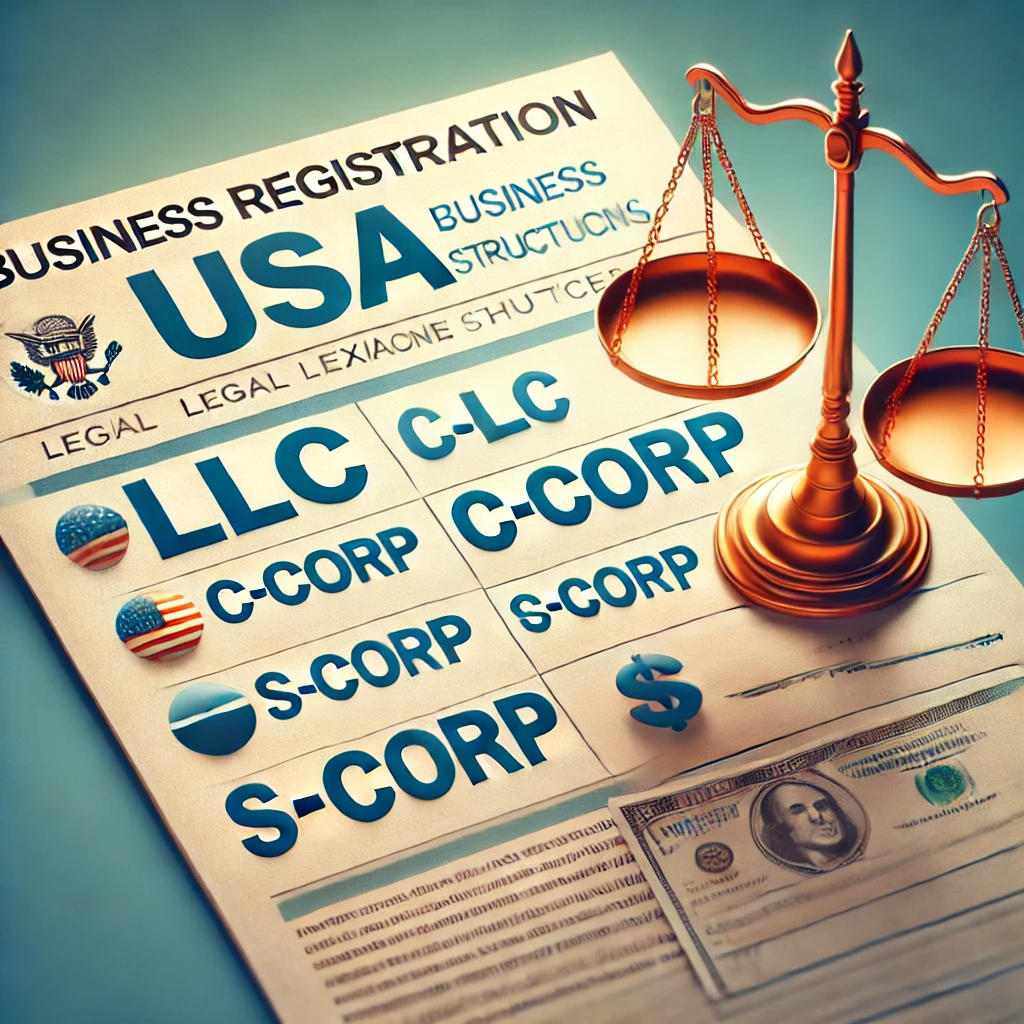Introduction:
In the ever-evolving global business landscape, the United States remains a beacon of opportunity for international entrepreneurs. The idea of turning a hobby into a profitable business in the American market is not only attractive, but also increasingly viable thanks to the digital economy and flexible business structures.
Recent data from the Small Business Administration (SBA) shows that small businesses account for 99.9% of all businesses in the US, evidencing a robust and welcoming ecosystem for new ventures. In addition, a study by the Kauffman Foundation revealed that 27% of entrepreneurs in the US started their business from a hobby, demonstrating the real potential of this approach.
As a specialist in international finance and a business consultant, I have observed a growing interest from foreign professionals – be they entrepreneurs, consultants, lawyers or accountants – in expanding their operations or guiding their clients in entering the American market. This comprehensive guide is designed to help you on your journey, offering practical insights and advanced strategies for turning your passion into a successful venture in the US.
Throughout this article, we’ll cover everything from the fundamental aspects of market validation to the complex nuances of legal structuring and international tax strategies. Whether you’re planning to launch your own business or advising clients in the process, this guide will give you the tools you need to navigate the dynamic American business environment with confidence.
Part 1: Ready to Roll 🚀 – Basic Strategies and Practical Actions
Part 1, “Ready to Roll”, offers practical actions and immediate advice for entrepreneurs who need quick and effective guidance.

1. Market Validation: Turning Passion into Opportunity
Importance of Market Research in the US
Before taking the leap, it is crucial to conduct in-depth market research. The American market, while vast, is also highly competitive and segmented. Your initial task is to determine whether there is substantial demand for the product or service related to your hobby.
Recommended methods for market research:
1. Secondary Data Analysis: Use industry reports from sources such as IBISWorld, Statista and US government reports.
2. Online Surveys: Platforms such as SurveyMonkey or Google Forms can help gather insights from the American target audience.
3. Concept Testing: Use crowdfunding platforms like Kickstarter to validate market interest.
4. Competitor Analysis: Tools such as SEMrush or Ahrefs can provide valuable insights into your potential competitors in the US.
Identifying market niches
The American market often rewards specialization. Identify specific niches where your unique expertise as an international professional can stand out.
Example: A Brazilian accountant specializing in taxation for expatriates could focus on offering services to the growing community of Brazilian technology professionals in Silicon Valley.
2. Developing a Business Model Adapted to the American Market
Choosing the right business model
Your choice between offering a product or service should be informed not only by the nature of your hobby, but also by the peculiarities of the American market and your own circumstances as an international entrepreneur.
Key considerations:
– Products: Require international logistics, customs considerations and potentially a physical presence in the US.
– Services: May be easier to offer remotely, but may face credibility and trust-building challenges at a distance.
Legal and tax structuring

Choosing the legal structure of your business in the US is crucial and should be done carefully, considering tax implications both in the US and in your home country.
Common options for international entrepreneurs:
1.LLC (Limited Liability Company): Offers flexibility and liability protection, and is a popular choice for small and medium-sized businesses.
2. C-Corporation: More complex, but can be advantageous for companies planning to seek venture capital investment or eventually go public.
3. S-Corporation: Generally not available to non-residents, but may be an option if you have an American partner.
Tax tip: Familiarize yourself with the double taxation treaties between your country and the US to optimize your tax structure.
3. Registration and Compliance: Navigating the American Bureaucracy
Essential steps for registration
1.Choosing a State: Some states, such as Delaware or Wyoming, are known for being business-friendly for foreign companies.
2. Obtaining an EIN (Employer Identification Number): Essential for operating in the US, even without employees.
3. TrademarkRegistration: Protect your trademark by registering it with the United States Patent and Trademark Office (USPTO).
Continuous Compliance
– Keep up to date with annual reporting requirements and tax obligations.
– Consider hiring a US registered agent to handle official correspondence and maintain compliance.
Part 2: Deep Dive 🤿 – Technical Depth in Advanced Strategies
Part 2, “Deep Dive”, provides in-depth analysis for those wishing to dive into the technical and complex aspects of international finance.
4. Financing Strategies and Tax Optimization
Financing Options for International Entrepreneurs
1. Self-financing: Often the most viable option initially, but be aware of international funds transfer regulations.
2. Angel Investors: Platforms such as AngelList connect startups with investors, including those interested in international ventures.
3. Venture Capital: Firms like 500 Startups have specific programs for international startups.
4. Crowdfunding: In addition to market validation, platforms such as Indiegogo can be sources of start-up capital.
Advanced Tax Strategies
– Transfer Pricing: Crucial for businesses operating between the US and other countries, ensuring that transactions between related entities are carried out at market price.
– Tax Treaties: Use double taxation treaties to optimize your global tax burden.
– Holding Structures: Consider establishing a holding company in tax-efficient jurisdictions to manage your global operations.
5. Marketing and Branding for the American Market
Building a Cross-Cultural Brand
1. Cultural Research: Invest in understanding the American cultural nuances relevant to your niche.
2. Message Adaptation: Adjust your tone and message to resonate with American audiences, while maintaining your international essence as a differentiator.
3. Content localization: Go beyond simple translation; adapt your content to the American cultural context.
Digital Marketing Strategies
– Localized SEO: Optimize for relevant search terms in the American market.
– Targeted Advertising: Use platforms such as Google Ads and Facebook Ads with precise geographic segmentation.
– Influencer Marketing: Partnerships with American influencers can provide instant credibility.
6. Technology and Operations: Infrastructure for Global Success
E-commerce platforms and payment systems
– Shopify: Offers robust solutions for international e-commerce, including multi-currency management and global shipping integrations.
– Stripe Atlas: In addition to payment processing, offers company formation support in the US for international founders.
Legal Compliance and Data Protection
– GDPR and CCPR: Even if you focus on the US market, consider global privacy regulations if you plan to operate internationally.
– Cybersecurity: Implement robust security protocols to protect customer data and intellectual property.
7. Expansion and Scalability: Planning for Growth
Market Entry Strategies
1. Strategic Partnerships: Collaborate with established US companies to gain credibility and market access.
2. Hub and Spoke Model: Establish a base in the US (hub) while maintaining operations in your home country (spoke).
3. Acquisitions: Consider acquiring small US companies as a way of entering the market quickly.
Remote and International Team Management
– Collaboration Tools: Use platforms such as Teams, Google Meet, Slack, Asana and Zoom to manage globally distributed teams.
– Global Corporate Culture: Develop a culture that embraces diversity and inclusion, essential for companies operating internationally.
Conclusion
Turning your hobby into a profitable business in the United States is a challenging but potentially rewarding journey. As an international entrepreneur, you bring a unique and valuable perspective to the American market. By following the strategies outlined in this guide – from careful market validation to implementing sophisticated tax and operational structures – you will be well placed to capitalize on the opportunities that the American market offers.
Remember, success in business, especially in a foreign market, is rarely instantaneous. It requires persistence, adaptability and a willingness to learn continuously. Keep abreast of changes in the law, market trends and technological advances that may impact your business.
For those who are advising clients on this journey, your expert guidance is invaluable. Help your clients navigate not only the practical aspects of establishing a business, but also understand the cultural and strategic nuances that can make the difference between success and failure in the competitive American market.
The path of turning a passion into a successful international business is full of challenges, but also exciting opportunities. With careful planning, strategic execution and the willingness to adapt to the demands of the global market, your hobby today can become a thriving enterprise tomorrow, connecting cultures and creating value on an international scale.
FAQs
1. Q: How much start-up capital is needed to start a business in the US as an international entrepreneur?
A: The capital required varies significantly depending on the type of business. For a technology startup, for example, you may need $50,000 to $100,000 for the first 6-12 months. For an online services business, you can start with less than $10,000. It’s crucial to have a detailed financial plan and consider costs such as company registration, legal compliance and initial marketing.
2. Q: Can I manage my American business remotely from my home country?
A: Yes, it is possible to manage remotely, especially for digital businesses. However, consider having a local representative or using virtual office services to handle official correspondence and maintain legal compliance. Some types of business may require occasional or regular physical presence in the US.
3. Q: What are the main tax challenges for international entrepreneurs operating in the US?
A: The main challenges include navigating the complexities of double taxation, understanding tax obligations in both the US and the home country, and implementing appropriate transfer pricing strategies. It is highly recommended to work with an accountant who specializes in international taxation.
4. Q: How can I protect my intellectual property in the US?
A: Register your trademarks and patents with the USPTO. Also consider registering copyrights for creative works. For software and trade secrets, implement robust confidentiality agreements and information security policies.
5. Q: What is the best legal structure for a hobby-based business in the US?
A: For many international entrepreneurs, an LLC (Limited Liability Company) offers a good balance between legal protection and tax flexibility. However, the ideal choice depends on factors such as your growth plan, investment needs and specific tax considerations.

Member of the IMA (Institute of Management Accountants) – USA
Member of the AICPA (American Institute of CPAs) – USA
Member of AAII (American Association of Individual Investors) – USA
Member of AAA (American Accounting Association) – USA
Member of the FMA (Financial Management Association) – USA
These associations not only attest to Kleyton’s commitment to professional excellence, but also ensure that his knowledge is always at the forefront of international financial and accounting practices.
With a robust academic background, including a Bachelor’s degree in Accounting and MBAs in International Finance and Accounting, as well as in International Business, Kleyton offers a unique and comprehensive perspective on the global business landscape.
Through the Tartarotti Report, Kleyton invites visionary entrepreneurs and executives to connect, explore opportunities for collaboration and, together, successfully navigate the complex world of international corporate finance.







